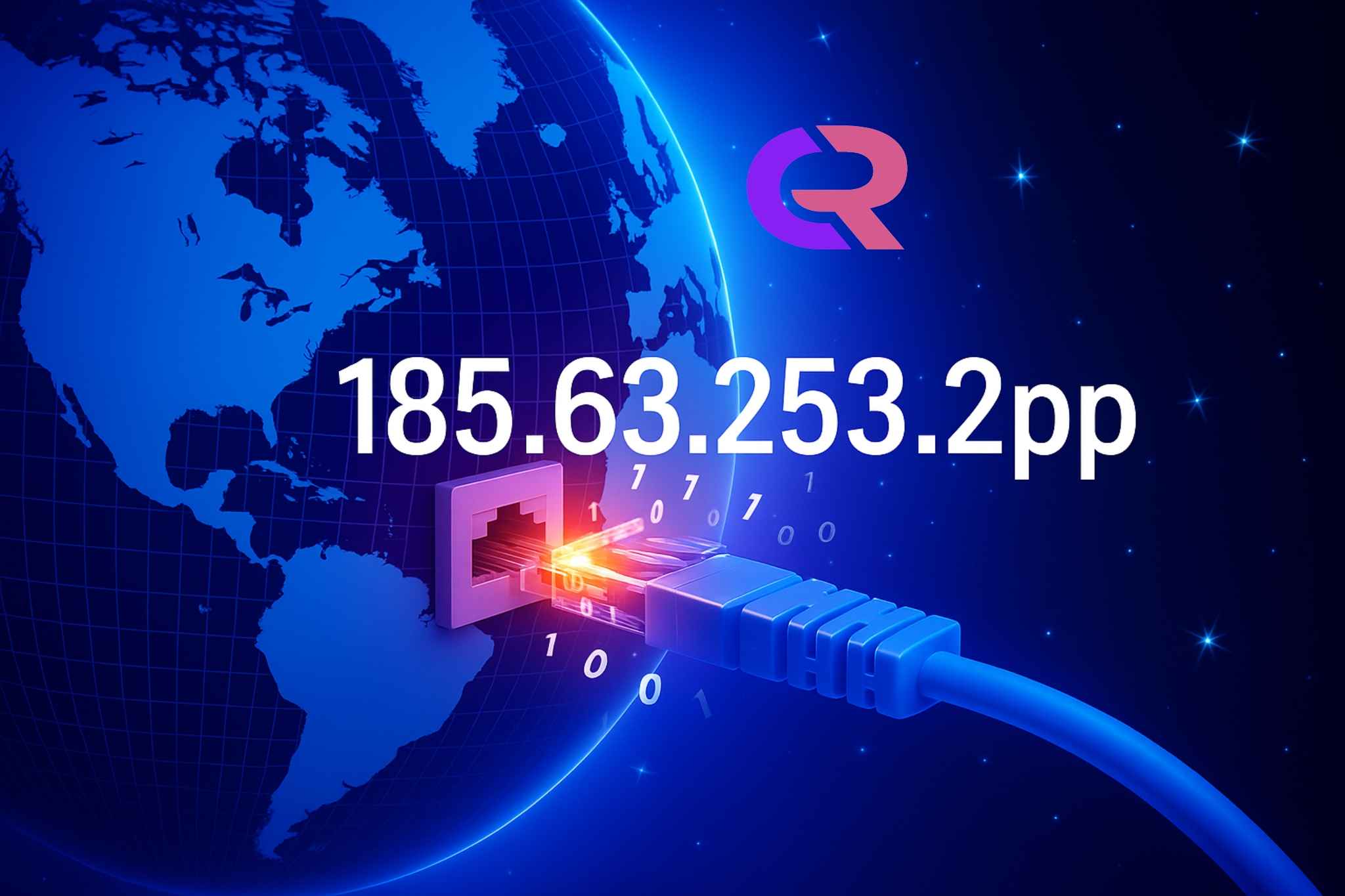185.63.253.2pp – What it means and why it might matter
If you’ve come across 185.63.253.2pp online, you’re not alone in wondering what it actually means. It looks like an IP address, but the “pp” part throws people off. This isn’t your typical tech reference. People searching for 185.63.253.2pp often land on odd websites or error pages. So let’s break it down.
185.63.253.2pp isn’t a real IP address
The first thing you need to understand is that it doesn’t follow standard IP address format. A proper IP address looks like four groups of numbers, separated by dots. Something like 185.63.253.2 is valid. But once you slap “pp” on the end, it stops being a technical address and becomes something else entirely.
That “pp” suffix isn’t part of how the internet routes data. There’s no known protocol that uses this format. That alone should raise questions about what 185.63.253.2pp is doing out there.
So why is 185.63.253.2pp showing up?
There are a few strong possibilities. First, it could be a typo. Maybe someone meant to write 185.63.253.2, and accidentally added “pp.” That seems innocent enough. But then you see it showing up across multiple websites, spam forums, and obscure search engine results. That’s not random.
There’s a pattern, and it points to something more deliberate. In fact, it could be a cloaked reference used in SEO spam, phishing attempts, or malware distribution.
The connection to spam and low-trust domains
Search engines occasionally surface strange domains and keyword strings. When it appears, it’s often tied to shady links, auto-generated pages, or misleading redirects. It behaves like a placeholder or a trigger string in a script.
That means you’re not looking at a normal web address. You’re looking at a tool. And that tool could be used to monitor traffic, collect data, or mislead users into clicking suspicious URLs.
It’s not uncommon to see similar odd strings like 127.0.0.1xx or 192.168.1.1admin popping up in low-quality domains. These aren’t real URLs either, just manipulated strings. 185.63.253.2pp fits into that world.
Could it be tracking or fingerprinting?
Let’s say you clicked a link and it had 185.63.253.2pp in the path or referral. That’s not a good sign. Sites using fake IPs with extra characters may be tracking devices, testing browser vulnerabilities, or experimenting with fingerprinting techniques.
In short, it could be a part of how certain platforms monitor where users go and what they do. These aren’t things people notice—until they start seeing weird traffic logs or strange redirects.
Don’t take it lightly if you spot it in analytics or browser histories.
185.63.253.2pp in URL injection or manipulation
There’s also the possibility of URL injection. Sometimes attackers will inject fake paths into URLs to confuse crawlers, mislead users, or bypass filters. The use of it might be one way to exploit how browsers or bots interpret partial URLs.
If you own a website and see it in your logs, check your access and error reports. You might be getting pinged by bots testing your server’s response to malformed requests. That’s often a precursor to more aggressive behavior.
Why does it keep showing up in search results?
Search engines occasionally index garbage data or manipulated content. If someone has embedded it into hidden metadata, backlink spam, or fake blog posts, the string might pop up in search results.
This isn’t because people are searching for it normally. It’s because the system is being gamed. The goal? To get clicks, push ads, or test if bots are crawling certain strings.
So it becomes a breadcrumb in a much bigger trail of manipulation.
Can you safely ignore 185.63.253.2pp?
If you’re an average user, probably. Just don’t click on anything sketchy or enter personal data on sites that look untrustworthy. If a search result includes 185.63.253.2pp, close it. If an email includes it, delete it.
But if you run a website, you shouldn’t ignore it. Strange entries like it in logs could indicate probing attempts, spam injection, or malicious bot activity. They’re not harmless curiosities. They’re early warnings.
The possibility of malware or fake proxies
Another angle worth considering is malware behavior. In some cases, malware will generate fake IP strings to obfuscate network activity. It could be such a marker—used in logs, encoded traffic, or fake headers to hide true origins.
Some browser-based malware even uses fake domains or malformed IPs like 185.63.253.2pp to trigger updates or fetch commands from a control server. You wouldn’t see this unless you’re monitoring traffic closely. But for cybersecurity pros, it’s a red flag.
Don’t enter 185.63.253.2pp into your browser
If you’re curious, don’t type it into your browser bar. It won’t lead to anything useful. Best case, you get a 404 error. Worst case, it redirects you through a series of sketchy sites that try to fingerprint your browser or serve malware.
People testing this kind of string often do so in a virtual environment or sandbox. There’s no benefit to testing it yourself on a personal device.
How to block or filter 185.63.253.2pp
If you’re a webmaster or sysadmin and keep seeing it appear in logs or referrers, you can set up basic rules to filter or block it. Since it’s not a real domain or address, you can flag anything containing that string and deny it access.
You can also track where those requests come from. Often they originate from known botnets or low-reputation IPs. That makes it easier to isolate the source and apply broader protections.
Why does 185.63.253.2pp even exist?
The short answer is: manipulation. Someone, somewhere, is using it for a purpose—likely tied to search engine spam, click fraud, bot tracking, or data harvesting.
It may also be a leftover from a test environment, mistakenly pushed to public view and picked up by crawlers. But the fact that it keeps reappearing tells us it serves someone’s goal.
It doesn’t exist for fun. It exists for exploitation.
What users should do if they encounter 185.63.253.2pp
Stay cautious. Don’t engage. Don’t click strange links. And don’t assume that something that looks like an IP address is legitimate.
If you run into it while browsing, treat it as suspicious. If it appears in your analytics, investigate. And if you see it being used in links or online forums, know that someone may be using it to test systems or bait users.
Always apply critical thinking to anything unusual on the internet. It’s no exception.
Final thoughts
It may look like a harmless string. But everything about it suggests manipulation, obfuscation, and possibly malicious intent. It’s not a typo. It’s a signal—used by someone trying to gain from confusion or inattention.
Whether it’s search engine poisoning, referral spam, bot testing, or malware command behavior, it serves a darker function. That’s why it matters. And that’s why you shouldn’t ignore it.
You might like this – The Many Faces Of “3381012544”: A Closer Look






